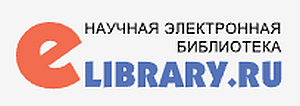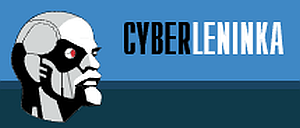Problems of ensuring Cognitive Security of the Information Society
DOI:
https://doi.org/10.47850/RL.2024.5.3.122-136Keywords:
information society, cognitive science, cognitive warfare, cognitive security, NBICS technologiesAbstract
The subject of philosophical reflection and interdisciplinary analytics are cognitive science and cognitive technologies, the intensive development of which allows us to reveal the secrets of consciousness at the nano-level and, accordingly, to implement a wide range of possibilities for managing cognitive processes. The onset of the cognitive revolution in the middle of the 20th century marked the beginning of interdisciplinary research that united cybernetics, psychology, human biology and social and humanitarian sciences.
In the last decade, military experts (primarily representing NATO) have declared their claims to master cognitive knowledge and technologies, proclaiming the emergence of a new, sixth domain of military conflicts – cognitive warfare.
The emerging situation causes an urgent need for large-scale scientific research, development of methods and technologies, personnel training, effective organizational measures to ensure cognitive security in the modern information society.
References
Ильенков, Э. В. (1984). Искусство и коммунистический идеал. Избранные статьи по философии и эстетике. Вступ. статья М. Лифшица. М.: Искусство. С. 51-52.
Ilyenkov, E. V. (1984). Art and the Communist Ideal. In Selected Articles on Philosophy and Esthetics. Lifshitz, M. (introduction article). Moscow. Pp. 51-52. (In Russ.)
Кефели, И. Ф., Кефели, К. И., Мелешин, К. Ю., Феоничев, А. Б. (2024). Когнитивная война в интерпретации научного сообщества НАТО и меры по обеспечению когнитивной безопасности России. Военная безопасность России: взгляд в будущее. 9-я Международная межведомственная научно-практическая конференция научного отделения № 10 Российской академии ракетных и артиллерийских наук, Москва, 14 марта 2024 г.: материалы конференции. В 3 т. Т. 1. М.: Изд-во МГТУ им. Н. Э. Баумана. С. 48-57.
Kefeli, I. F., Kefeli, K. I., Meleshin, K. Yu., Feonichev, A. B. (2024). Cognitive warfare in the interpretation of the NATO scientific community and measures to ensure Russia's cognitive security. In Military security of Russia: A Look into the Future. 9th International Interdepartmental Scientific and Practical Conference of Scientific Department No. 10 of the Russian Academy of Rocket and Artillery Sciences, Moscow, March 14, 2024. Conference Materials. In 3 vol. Vol. 1. Moscow. Pp. 48-57. (In Russ.)
Кефели, И. Ф., Плебанек, О. В. (2024). Пролегомены когнитологии и когнитивной безопасности. Хрупкость жизни в условиях новой реальности. Отв. ред. Г. Л. Белкина; ред.-сост. М. И. Фролова. М.: КАНОН+. С. 186-210.
Kefeli, I. F., Plebanek, O. V. (2024). Prolegomena of cognitology and cognitive security. In The Fragility of Life in the Conditions of the New Reality. Belkina, G. L., Frolova, M. I. (eds.). Moscow. Pp. 186-210. (In Russ.)
Миллер, Дж., Галантер, Е., Прибрам, К. (1965). Планы и структура поведения. Общ. ред. и предисл. А. Н. Леонтьева и А. Р. Лурия. М.: Прогресс. 238 с.
Miller, J., Galanter, E., Pribram, K. (1965). Plans and Structure of Behavior. Leontiev, A. N., Luria, A. R. (eds.). Moscow. 238 p. (In Russ.).
Шмальгаузен, И. И. (1968). Кибернетические вопросы биологии. Под общ. ред. и с предисл. Р. Л. Берг и А. А. Ляпунова. Новосибирск: Наука. 224 с.
Shmalgauzen, I. I. (1968). Cybernetic Issues of Biology. Berg, R. L., Lyapunov, A. A. (eds.). Novosibirsk. 224 p. (In Russ.)
Юлина, Н. С. (2004). Головоломки проблемы сознания: концепция Дэниела Деннета. М.: Канон+. 544 с.
Yulina, N. S. (2004). Puzzles of the Problem of Consciousness: Daniel Dennett’s Concept. Moscow. 544 p. (In Russ.)
A Grantmaking history 1934-2009. (2009). 75th Anniversary Commemorative Publication, Alfred P. Sloan Foundation.
Cluzel, F. (2020). Cognitive Warfare. June-November 2020. Innovation Hub. 45 p.
Gardner, H. (1985). The mind's new science: the history of the cognitive revolution. N.Y.
Klaauw, C. (2023). Cognitive Warfare. The Three Swords. Iss. 39. Pp. 99-101.
Libicki, M. C. (1995). What Is Information Warfare? Center for Advanced Concepts and Technology Institute for National Strategic Studies. Washington. 104 p.
Linebarger, P. M. A. (1948). Psychological Warfare. Infantry Journal Press. New York. 259 p.
Manera, V., Tirassa, M. (2010). Cognitive science. In The pragmatics encyclopedia. Cummings, L. (ed.). London and New York. Routledge. Pp. 55-58.
Masakowski, Y. R., Blatny, J. M. (eds.). (2023). Mitigating and Responding to Cognitive Warfare. Science and Technology Organization North Atlantic Treaty Organization BP 25, F-92201 Neuilly-sur-Seine Cedex, France, March 2023. 146 p. [Online]. Available at: https://agora0.gitlab.io/pen/0x1d/ heros/2023-03-28-NATO-a1_c-cognitive-warfare.html (Accessed: 20 May 2023).
Miller, G. A. (2003). The cognitive revolution: a historical perspective. Trends in Cognitive Sciences. Vol. 7. No. 3. Pp. 141-144.
Minor, D. (1970). The Information War: How the Government and the Press Manipulate, Censor and Distort the News. New York. Hawthorn books. XII. 212 p.
Newell, A., Simon, H. A. (1976). Computer science as empirical enquiry: symbols and search. Communications of the Association for Computing Machinery. Vol. 19. No. 3. Pp. 118-119.
Downloads
Published
Versions
- 2025-03-29 (2)
- 2024-10-12 (1)
How to Cite
Issue
Section
License

This work is licensed under a Creative Commons Attribution-NonCommercial-NoDerivatives 4.0 International License.
https://oc.philosophy.nsc.ru/remote.php/webdav/%D0%94%D0%BE%D0%B3%D0%BE%D0%B2%D0%BE%D1%80%20%D1%81%20%D0%B0%D0%B2%D1%82%D0%BE%D1%80%D0%BE%D0%BC%20RL-%D0%BF%D1%80%D0%B0%D0%B2.doc










